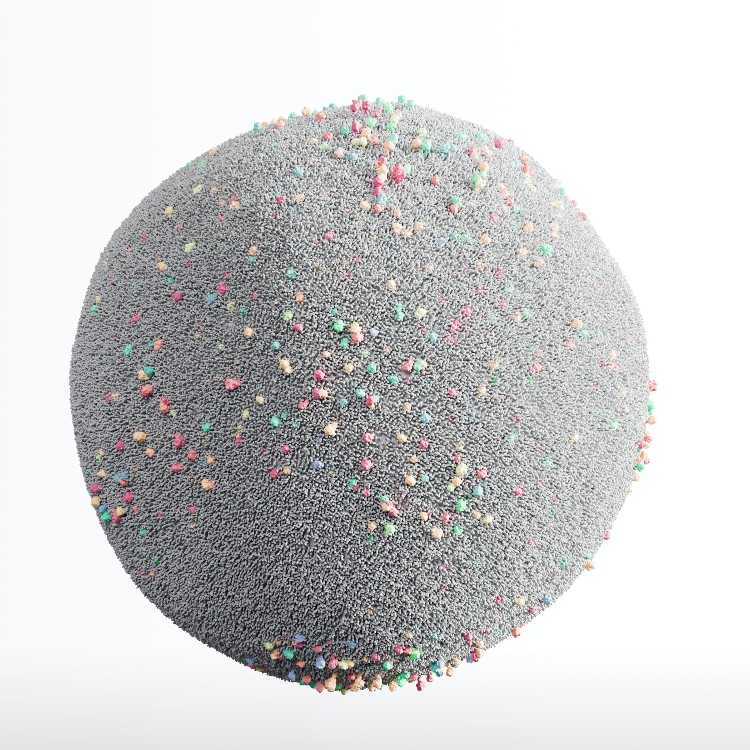
Effective Stem Cell Activators: A Detailed Guide
Stem cells are cells that improve tissue regeneration and repair. They represent the core of research in regenerative medicine. During the aging process, the number of circulating stem cells reduces, while the body’s healing process becomes more challenging.
In order to encourage their activation, there are several options we can take into account. But before diving deeper into each of them, let’s understand better stem cell activators.
What Are Stem Cell Activators?
Stem cells are undifferentiated. They possess the ability to divide and transform into specialized cell types, such as muscle, nerve, or blood cells.
In simple terms, stem cell activators are all agents that stimulate the body to activate stem cells. They influence key signaling pathways that modulate gene expression, causing a dormant cell to become an active stem cell.
The activation of stem cells holds immense therapeutic promise, particularly in treating degenerative diseases, injuries, and other medical conditions where tissue regeneration is crucial. As scientific research delves deeper into the nature of stem cells, their applications in regenerative medicine continue to expand.
The Best Stem Cell Activators
There are various ways for stem cell stimulation. Some of these are antioxidants, certain superfoods, and factors that cause hormetic stress in the body, such as intermittent fasting, exercise, and exposure to cold temperatures. Let us examine each of them in more detail:
Superfood
Good food for stem cells encompasses a wide range of fruit, vegetables, nuts, and seafood. Here is a summary of important foods and the compounds they contain that activate stem cells:
- Different kinds of berries: Rich in flavonoids – quercetin and anthocyanins; and polyphenolic compound – resveratrol.
- Ginger: Contains phenolic compound gingerol, known for its anti-inflammatory properties.
- Cruciferous vegetables (broccoli, kale, cabbage, radish): Source of sulforaphane, a compound with antioxidant and anti-inflammatory effects.
- Certain mushrooms, such as shiitake: Contain polysaccharides like beta-glucans.
- Seed and nuts: Good good sources of polyphenols and omega-3 fatty acids.
- Seafood: Provides omega-3 fatty acids and astaxanthin.
- Pomegranate: High in polyphenols, particularly punicalagins, anthocyanins, and ellagic acid.
Stem Cell Activator Supplements
Polyphenols and other antioxidants found in natural sources are typically less bioavailable. Fortunately, longevity supplements can help. Here is a breakdown of the most potent stem cell activator supplements:
1. Polyphenol Supplements
- Resveratrol: A powerful antioxidant found in red grapes, berries, and peanuts.
- Quercetin: Abundant in foods like apples, onions, and capers, quercetin possesses immense anti-inflammatory and antioxidant properties.
Apart from stem cell activation, polyphenol supplements have strong anti-aging abilities. VANA’s Smart Liquid™ formula contains bioactive polyphenols with the addition of NMN, fisetin, and berberine. Besides its strong longevity effects, VANA represents a potent method of restoring your overall vitality from the inside.
2. Vitamins
- Vitamin D: Known as the “sunshine vitamin,” vitamin D is crucial for bone health and has been linked to stem cell activation. It interacts with receptors on the surface of stem cells, influencing their differentiation and function.
- Vitamin C: Aa an effective antioxidant, vitamin C supports the production of collagen and contributes to stem cell activation by promoting a favorable cellular microenvironment.
3. Curcumin
Derived from turmeric, curcumin is also a polyphenol with strong anti-inflammatory and antioxidant properties. Curcumin activates these cells by affecting the expression of genes involved in cell proliferation and shields them from toxicity.
Intermittent Fasting
Intermittent fasting is one of the best stem cell activators as it activates them in several diverse ways:
1. Inducing Autophagy
Intermittent fasting triggers a cellular process of recycling damaged cell components, known as autophagy. This process may activate stem cells by creating a more favorable cellular environment.
2. Increased Growth Hormone Levels
Fasting periods can lead to an increase in growth hormone levels, which is associated with stem cell activation.
3. Enhanced Metabolic Flexibility
During fasting, the body shifts from using glucose as a primary energy source to utilizing stored fats. As a result of changes in the cellular energy state, this metabolic switch may activate stem cells.
4. Reduction of Oxidative Stress and Inflammation
Intermittent fasting is associated with a decrease in oxidative stress and inflammation, both of which can negatively impact stem cell function.
5. Improvement in Insulin Sensitivity
Fasting periods enhance insulin sensitivity and reduce the risk of metabolic disorders. Improved insulin sensitivity may boost activity of these unique cells.
6. Upregulation of Sirtuins
Sirtuins are enzymes responsible for numerous processes in cellular regulation. Intermittent fasting may upregulate the expression of sirtuins, contributing to the activation of stem cells and promoting longevity.
Cold Exposure
Cold exposure, such as cold showers or cryotherapy, has been linked to the activation of stem cells. The mechanism behind this phenomenon involves the body’s response to hormetic stress. When exposed to low temperatures, the body activates a survival mechanism. It triggers the release of stress hormones and increases sympathetic nervous system activity. This process activates stem cells.
Exercise and Sleep
The contribution of exercise and sleep to stem cell activation lies in an increase in growth hormone levels.
Regular exercise enhances the circulation of blood and growth hormones. On the other side, adequate sleep is essential for various physiological processes, including the release of growth hormones. Together, a balance between exercise and quality sleep creates an environment that supports the activation and functioning of these cells.
Stem Cell IV Therapy
Stem cell intravenous therapy involves the infusion of stem cells directly into the bloodstream, bypassing the digestive system to supply a concentrated dose of them. This therapeutic approach aims to enhance stem cell activation by facilitating their rapid delivery to damaged or degenerated tissues. The infused cells may then localize on areas of injury or inflammation and promote tissue regeneration. This innovative procedure holds potential for treating various inflammatory and degenerative diseases.
The Bottom Line
It is possible to efficiently activate stem cells in a variety of ways. If fasting and cold exposure seem like extreme methods, healthy foods undeniably bring multiple benefits to our health. Make sure your diet is rich in antioxidant-rich foods, and consider taking polyphenol supplements.
FAQ
Do stem cell activators really work?
The efficacy of stem cell activators is a subject of ongoing clinical trials. Even though some studies suggest promising results, further research is necessary. The effectiveness of stem cell activators may differ depending on a specific medical condition and individual body reaction.
Can your body make more stem cells?
Yes, the human body has the unique ability to produce more stem cells. They can divide into identical stem cells and specialized cells with specific functions. This self-renewal capacity enables the continuous regeneration of various tissues and organs. While the pace of their production may vary across different tissues, their regeneration ability indisputably contributes to the maintenance of optimal health.
How do stem cells work?
These cells exhibit capability for self-renewal and differentiation. They can be divided into two types: pluripotent stem cells (possess the capability to differentiate into almost any cell type) and adult stem cells, which generate replacements for damaged cells.
Pluripotent stem cells lack tissue-specific characteristics but can transform into diverse cell types. On the other hand, adult stem cells evolve to specialized cells that reflect their tissue of origin. Factors secreted by cells, physical contact, and microenvironmental molecules play important roles in their differentiation.
Which medications inhibit stem cell activation?
Several medications and treatments can influence or inhibit stem cell activation. For example:
- Chemotherapy and radiation: While these treatments are potent against rapidly dividing cells, they can also affect healthy cells, including certain types of stem cells.
- Immunosuppressant drugs: Medications used to suppress the immune system, such as those prescribed after organ transplantation, may impact the activity of certain stem cells.
- Certain antibiotics: Some antibiotics, particularly those with toxic effects on dividing cells, might affect their function.
Medication effects on stem cells can differ, thus it is crucial to pay attention to dosage and duration of usage.


